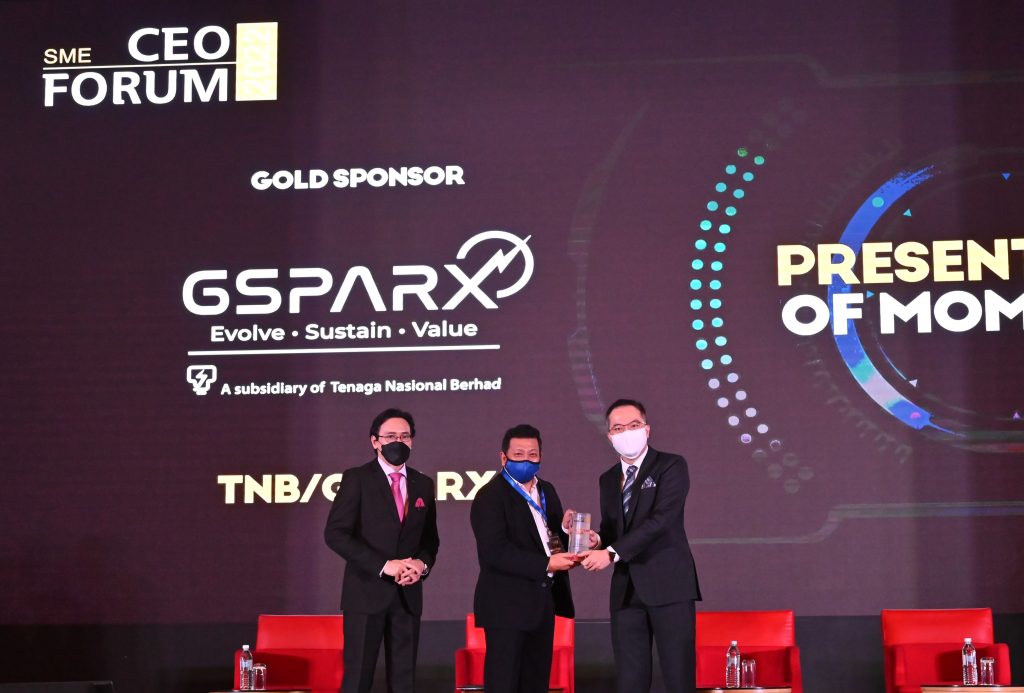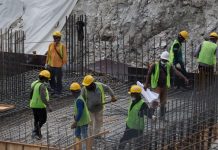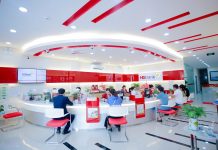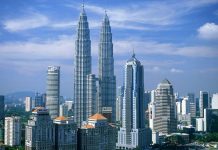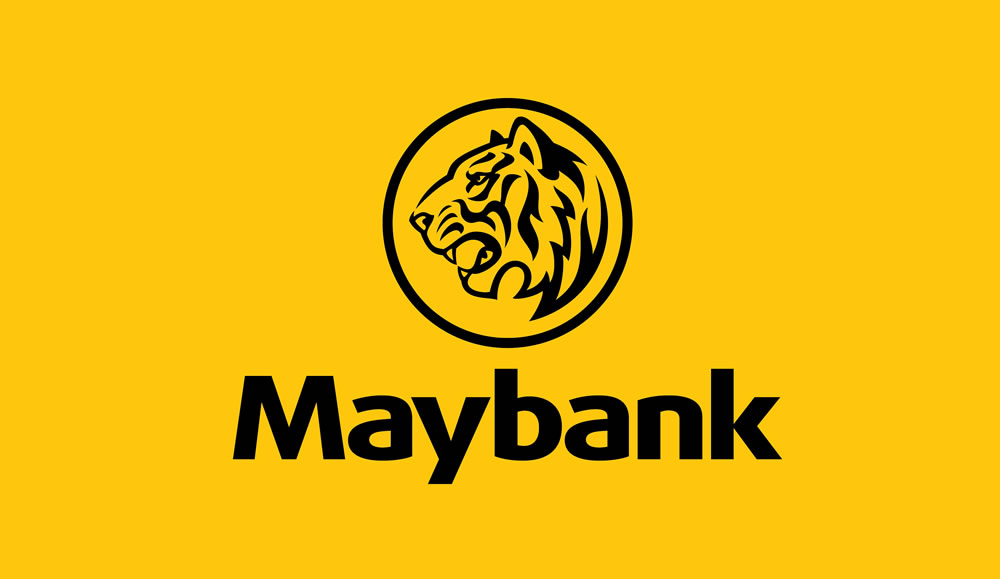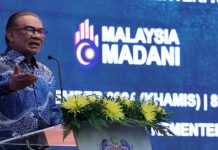As a responsible corporate citizen, national utility company, Tenaga Nasional Berhad (TNB) is continuing its effort to be a key enabler for the customers to adopt sustainability through digitalisation. Chief Retail Officer of TNB and Chairman of GSPARX Sdn Bhd Datuk Ir. Megat Jalaluddin Megat Hassan shares his inputs with SME Asia at the recent SME CEO Forum KL Edition organised by Business Media International in collaboration with the Small and Medium Industries Association (SAMENTA).
Here are the excerpts:
Q: How can digitalisation be an enabler for sustainability? How do key collaborations with the right partners and digitalisation help the general public adopt a smarter, greener lifestyle?
A: TNB has always viewed digitalisation as a critical component in empowering customers to adopt sustainable business practices. One of the key enablers towards this goal is the ability to monitor the energy consumption at home and at work through myTNB app and portal.
Currently, this home-grown platform has about 6 million customer accounts connected including commercial and industrial customers. For those with Smart Meters connected, they can track their daily energy consumption, as opposed to monthly for those without Smart Meters. With this advantage, customers are able to access timely information, reduce any energy wastage and save on their monthly electricity bills.
Advanced Metering Infrastructure or Smart Meter is not a new technology with over 700 million customers worldwide currently enjoying the benefits of managing their energy consumption with Smart Meters. In Malaysia, TNB is appointed by the government to deploy this initiative nationwide for free and to date, about 2.3 million households and businesses are fitted with Smart Meters. By 2026/27, 9 million accounts are targeted to be connected with Smart Meters.
When paired with Smart Meters, myTNB becomes an even more useful tool. For residential accounts, they have the Energy Budget feature that enables customers to set a budgetary limit and alerts customers when it reaches 75% of the budget limit. The feature doesn’t disconnect customers from the power supply but prompts them to take action and manage any energy wastage.
For businesses with multiple TNB accounts, we have recently initiated the Pilot Phase of the myTNBiz portal for selected accounts. myTNBiz portal provides added convenience to customers that have more than one (1) TNB account to manage and monitor the respective energy consumption. As we continue to improve our service offerings on the portal, we aim to invite more commercial accounts to join the platform for their betterment.
Moving forward, customers would be invited to go paperless and agree to stop receiving paper bills; they can opt for digital bills, which are downloadable from the myTNB app and portal. After all, for every 40 people who choose to receive digital bills, we can save 1 tree.
This encourages our customers to be more environment-friendly in small but meaningful ways. We need to collaborate together in order to bring a better, brighter future for the next generation!
Q: Can you comment on the role of TNB in addressing SDG 7 “energy efficiency and ensuring clean & affordable energy for all”?
TNB’s main role to provide access to affordable, reliable and sustainable energy is critical to the development of any community and the nation at large. The Sustainable Development Goal or SDG 7 calls for such access to be made available to everyone on this planet by 2030.
At TNB, we are doing our part in driving the Energy Transition agenda in pursuit of our sustainability aspiration to be a Net Zero Carbon Emission company by 2050. We have outlined a clear pathway to achieve our ESG commitments while ensuring there is continued business growth for the company.
Recently, we announced our fast-track plans to decarbonise our power generation mix to cleaner sources; enhance the Grid of the Future to facilitate more green solutions; and empower our customers to adopt a smarter, greener lifestyle through low carbon mobility initiatives.
Q: What are TNB’s ESG commitments and how does it impact and help influence people, either as an individual or an organisation, to thrive in an endemic world?
While the Environment, Social & Governance or ESG commitments of TNB have been in the works before the pandemic, we do acknowledge that the public’s sentiment towards green issues has evolved towards a higher acceptance level now. Consumers have become more conscious about their own impact on this planet and are more willing to explore alternatives that are more sustainable to create a better tomorrow.
For us at TNB, our ESG commitments are to be a carbon-free company by 2050 while providing smart green solutions to our customers as means to make it easier for them to achieve their own ESG goals.
Addressing ESG Scope 1 & 3: Electrification of company fleet & adoption of low carbon mobility
The ESG Scope 1 lists the direct carbon emissions from the daily operations of an organisation. The ESG Scope 3 also identified employee commuting as emissions from up the value chain of an organisation. To help address these, TNB have developed solutions and key partnerships that would assist in decarbonising a SME’s fleet operations.
Currently, there are no import and excise duties as well as no road tax for completely knocked down (CKD) and completely built-up (CBU) EVs. This helps to reduce the entry-point towards electrification of a company fleet and purchasing an EV for an individual’s usage.
If a company does decide to electrify the company’s fleet in stages, TNB can step in as a facilitator to advise and provide fast-charging points for their fleet of electric vehicles (or EVs) at the home base. We are also collaborating with partners to address potential range anxiety when on public roads.
We have taken the position as a facilitator in driving growth in the EV ecosystem and helping achieve the nation’s target of deploying 10,000 public chargers for battery electric vehicles (BEVs).
Another new development that TNB is working to foster the EV ecosystem is a single e-mobility platform, accessible on an app and portal for EV users to find EV charger locations near them. The database is being developed based on collective information on EV charging installation from all our partners.
- This EV Charging Infrastructure network on a single platform is being developed by our wholly-owned subsidiary, TNBX Sdn Bhd.
- Once ready, this e-mobility platform is able to provide a single point of access to EV zones in Peninsular Malaysia as well as a secure payment channel.
As all the pieces fall into place, we are confident that we can support the SME community to adopt low-carbon mobility operations toward a seamless driving and charging experience.
The misconception of high operating costs between BEV and ICE
Addressing a common misconception about the perceived high operating cost of BEV vs internal combustion engine (ICE) cars, our studies showed that operating an EV in Malaysia is between 11% to 28% cheaper than petrol vehicles using RON 95. For electricity rates, the public is advised that these are determined by the Energy Commission under the purview of the Energy and Natural Resources Ministry.
Addressing Scope 2 & 3: Rooftop solar PV solutions & GET
Under the Scope 2 of ESG, the indirect carbon emissions from electricity can be offset through renewable energy sources. This can be achieved with the help of TNB’s wholly owned subsidiary, GSPARX that offers solar expertise through end-to-end consultation to help SMEs generate their own electricity through solar power at Zero Upfront Cost via the Supply Agreement for Renewable Energy or SARE.
With the installation and maintenance costs borne by GSPARX, the participating companies only need to pay for the solar energy generated to GSPARX, which acts as an investor, at a lower solar tariff compared to the regulated electricity tariff. This translates to energy savings through the reduction of their electricity costs that range in hundreds of thousands or millions, depending on the annual consumption of the companies.
For instance, AmBank became the first financial institution in Malaysia to install a 66kWp rooftop solar PV at its Damansara Fairway 3 building back in end Sept 2020 and is expected to enjoy potential savings of about RM300,000 over a 21-year period.
Companies can further enjoy more savings by exporting any excess energy generated back to the national grid with TNB offsetting the amount, resulting in even more cost-saving under the Net Energy Metering or NEM Scheme, which is advocated by the Energy Commission and the Energy & Natural Resources Ministry.
For SMEs with limited rooftop real estate on their own premises or those who are leasing their operation locations, they can still offset their Scope 2 emissions through the Green Electricity Tariff or GET programme.
This programme is also capable of addressing Scope 3 emissions from down the value chain by assisting industrial entities to identify partners in the supply chain that are certified by internationally accredited registries to be RE-compliant.
Introduced by the government, GET is open to all electricity consumers, both individuals and companies, to reduce their carbon footprint in electricity consumption by supporting the growth of the country’s green agenda and reducing reliance on gas or coal-fired power plants.
Consumers can power their homes with green electrons coming from renewable energy (RE) sources of Large-Scale Solar (LSS) and hydro without having to install their own rooftop solar or other renewable energy installation. Upon subscribing to GET, subscribers will receive Malaysia Renewable Energy Certificate (mREC) certified by internationally accredited registries.
As the current GET quota of 4TWh is fully subscribed as of end of March 2022, we are currently working with the Energy Commission in the next phase of the programme
The acceleration towards decarbonisation of our power generation is in order to achieve our targets of a 35% reduction in CO2 emissions intensity & a 50% reduction of our coal generation capacity by 2035.
As we at TNB continue to expand our clean energy portfolio, our customers in the SME sector can be assured that in time, the electricity powering their businesses would be from renewable energy sources such as:
o Initiatives on clean energy technologies like carbon capture, utilisation & storage (CCUS), and hydrogen as a source of clean fuel are expected to spur further growth of new economic sectors; and
o Selected coal plants are being reviewed to be retired early like the Kapar Energy Ventures while others are being assessed for repowering from gas to hydrogen such as our Paka power plant.
With regards to the reliability factor, we continue to invest in the nation’s power infrastructure to develop the Grid of the Future that ensures a smooth Energy Transition, which balances grid security, sustainability and affordability. This includes regional collaboration with our ASEAN utility partners towards greater energy security.




